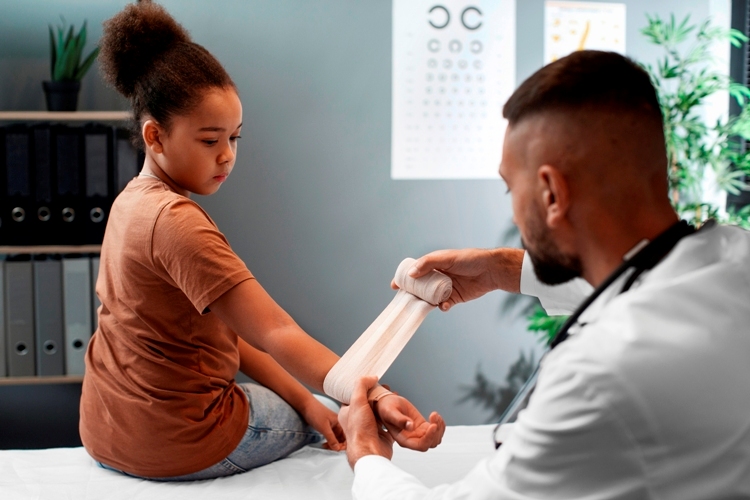


As parents, our primary concern is the health and well-being of our children. Many childhood health concerns are minor and resolved on their own. However, certain symptoms require you to check for emergency healthcare near you. Recognizing these critical health warning signs can help ensure your child receives the necessary care. This article shares the key indicators that your child may need emergency health care, helping you to act swiftly.
Breathing difficulties in children can be alarming. If your child is breathing rapidly, struggling to breathe, or making grunting noises, it could indicate a serious respiratory issue. Look for signs like flaring nostrils, chest retractions, or bluish lips and face. This suggests a lack of oxygen and needs immediate medical attention. Rapid breathing can be a sign of pneumonia or asthma while grunting can indicate severe respiratory distress.
Fevers are common in children. A persistent high fever that doesn’t respond to medication is a sign of a severe infection. If your child’s fever exceeds 104°F (40°C) or is accompanied by a rash, severe headache, or neck stiffness, seek emergency healthcare near you. This will help you to rule out conditions like meningitis or sepsis. Also, if a fever lasts more than three days or your child appears unusually irritable or lethargic, it’s crucial to get a professional evaluation.
Children often complain of stomach aches. However, severe, persistent abdominal pain can be a sign of appendicitis or other serious conditions. If the pain is localized, especially in the lower right abdomen, or if it’s accompanied by vomiting, fever, or swelling, it’s crucial to opt for emergency primary care. Appendicitis can lead to a ruptured appendix if it is left untreated.
Sudden changes in your child’s behavior, such as extreme lethargy, confusion, or unresponsiveness, can indicate a severe underlying issue. These symptoms could be related to infections, head injuries, or neurological conditions. If your child has difficulty staying awake or seems unusually disoriented, seek emergency healthcare near you.
Minor cuts and scrapes are part of childhood. However, uncontrolled bleeding that doesn’t stop with pressure or is spurting requires urgent medical attention. This could indicate a deep wound or a bleeding disorder. Additionally, if your child has a nosebleed that lasts longer than 20 minutes, it’s time to visit the emergency room. Uncontrolled bleeding can lead to significant blood loss and shock, which are life-threatening conditions. Always keep a first aid kit handy and know basic measures to manage bleeding until help arrives.
Allergic reactions can escalate quickly in children. Signs of a severe allergic reaction, or anaphylaxis, include swelling of the face or throat, difficulty breathing, and a sudden drop in blood pressure. If your child shows symptoms, use an epinephrine auto-injector and call emergency services immediately. Anaphylaxis can be triggered by foods, insect stings, medications, or latex. It’s crucial to identify and avoid known allergens.
Vomiting and diarrhea are common in children. But, persistent episodes can lead to dehydration, which is dangerous. Signs of severe dehydration include dry mouth, no tears when crying, sunken eyes, and reduced urine output. If your child can’t keep fluids down or shows signs of dehydration, seek medical help. Dehydration can quickly become severe in young children, leading to electrolyte imbalances and shock. Oral rehydration solutions can help manage mild dehydration, but severe cases require intravenous fluids.
Every parent must be able to recognize the signs that their child needs emergency healthcare near them. While it’s natural to worry, understanding these warning signs can help you make informed decisions and act quickly when necessary. Always trust your instincts, and don’t hesitate to seek medical attention if something doesn’t seem right. Early intervention can make a significant difference in your child’s health outcomes, ensuring they receive the care they need and when they need it the most.




